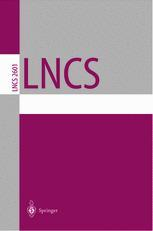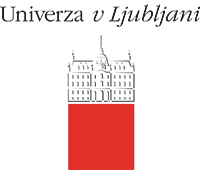Paper Submission
Submitted papers may be up to
twelve (12) pages long and
must be formatted according to
the layout supplied by Springer-
Verlag for the Lecture Notes in
Computer Science series. The
proceedings of selected papers
will be published within this
series.
Submitted papers may not have appeared in or be under consideration for another conference or a journal, nor may they be under review or submitted to another forum during the DS 2014 review process.
To submit a paper, use the following link:
https://www.easychair.org/conferences/?conf=ds2014.
We welcome papers that focus on the analysis of different types of complex data, such as structured, spatio-temporal and network data. We particularly welcome papers addressing applications. Finally, we would like to encourage contributions from the areas of computational scientific discovery, mining scientific data, computational creativity and discovery informatics.
An indicative non-exhaustive list of topics includes
Call for papers is disseminated through www.KDnuggets.com and ML news group.
Submitted papers may not have appeared in or be under consideration for another conference or a journal, nor may they be under review or submitted to another forum during the DS 2014 review process.
Key dates
- Abstracts:
May 19, 2014, 12:00 CETCLOSED - Full paper submission:
May 9, 2014 May 26, 2014, 12:00 CETCLOSED - Author notification:
June 20, 2014COMPLETED - Camera-ready papers due:
July 9, 2014COMPLETED - Early registration deadline: September 8, 2014
To submit a paper, use the following link:
https://www.easychair.org/conferences/?conf=ds2014.
Call for papers
DS 2014 provides an open forum for intensive discussions and exchange of new ideas among researchers working in the area of Discovery Science. The scope of the conference includes the development and analysis of methods for discovering scientific knowledge, coming from machine learning, data mining, and intelligent data analysis, as well as their application in various scientific domains.We welcome papers that focus on the analysis of different types of complex data, such as structured, spatio-temporal and network data. We particularly welcome papers addressing applications. Finally, we would like to encourage contributions from the areas of computational scientific discovery, mining scientific data, computational creativity and discovery informatics.
An indicative non-exhaustive list of topics includes
- computational scientific discovery
- data mining and knowledge discovery
- machine learning and statistical methods
- computational creativity
- mining scientific data
- data and knowledge visualization
- knowledge discovery from scientific literature
- mining text, unstructured and multimedia data
- mining structured and relational data
- mining temporal and spatial data
- mining data streams
- network analysis
- discovery informatics
- discovery and experimental workflows
- knowledge capture and scientific ontologies
- data and knowledge integration
- logic and philosophy of scientific discovery
- applications of computational methods in various scientific domains (e.g., bioinformatics, system biology, and climate informatics)
Call for papers is disseminated through www.KDnuggets.com and ML news group.
© 2014 Discovery Science




